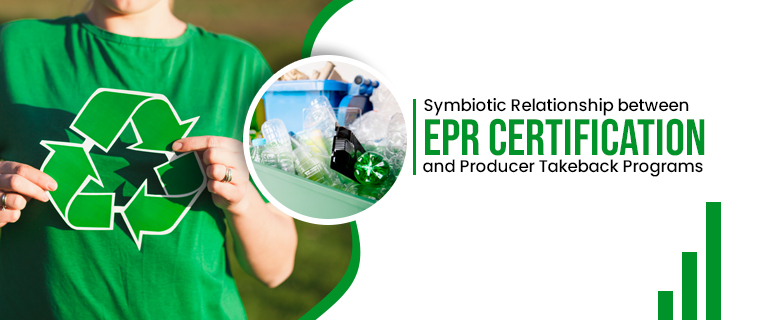EPR Certification and the Green Supply Chain Revolution
In an era where environmental consciousness is paramount, businesses worldwide are increasingly recognizing the importance of adopting sustainable practices. Two key elements driving this change are Extended Producer Responsibility (EPR) certification and the integration of green principles into supply chain management. In this blog, we'll explore the significance of EPR certification and its synergy with the green supply chain movement.
Extended Producer Responsibility (EPR) Certification:
EPR is a concept that places the responsibility for a product's entire lifecycle on the producer, including its disposal. EPR certification is a seal of approval, indicating a company's commitment to managing the environmental impact of its products from creation to end-of-life. By obtaining EPR certification, businesses demonstrate accountability for their products' environmental footprint, fostering trust and loyalty among environmentally conscious consumers.
Read also this -: Communicating EPR Registration Efforts to ConsumersKey Benefits of EPR Certification:
1. Environmental Stewardship: EPR certification encourages companies to minimize waste, promote recycling, and reduce their carbon footprint, contributing to overall environmental sustainability.
2. Regulatory Compliance: Many countries have implemented EPR regulations to ensure that businesses adhere to responsible waste management practices. EPR Certification ensures compliance with these regulations, protecting companies from legal repercussions.
3. Consumer Trust and Market Differentiation: EPR certification enhances a company's reputation, instilling confidence in consumers who prioritize environmentally friendly products. It also provides a competitive edge in a market where sustainability is a key differentiator.
The Green Supply Chain Revolution:
A green supply chain focuses on minimizing environmental impact by integrating sustainable practices into every stage of the supply chain process. From sourcing raw materials to production, transportation, and distribution, companies are redefining traditional supply chain models to align with eco-friendly principles.
Components of a Green Supply Chain:
1. Sustainable Sourcing: Opting for responsibly sourced raw materials helps reduce deforestation, habitat destruction, and other negative environmental effects.
2. Energy Efficiency: Implementing energy-efficient technologies in manufacturing processes and transportation reduces greenhouse gas emissions and operational costs.
3. Waste Reduction and Recycling: Minimizing waste through efficient production processes and encouraging recycling of materials contribute to a circular economy, where resources are reused and repurposed.
4. Logistics Optimization: Green supply chains prioritize eco-friendly transportation methods, route optimization, and the use of alternative fuels to reduce carbon emissions.
Read also this -: Guide To Getting EPR Certification OnlineSynergy between EPR Certification and Green Supply Chain:
The intersection of EPR certification and green supply chain practices creates a powerful sustainability framework for businesses. EPR ensures that companies take responsibility for their products throughout their lifecycle, while a green supply chain extends these principles to the broader logistics and operational aspects.
Conclusion:
Embracing EPR certification and adopting green supply chain practices is not just a trend; it's a strategic imperative for businesses in a world grappling with environmental challenges. Companies that commit to these initiatives not only contribute to a healthier planet but also position themselves as responsible and forward-thinking leaders in their respective industries. As consumers increasingly demand eco-friendly choices, the amalgamation of EPR certification and green supply chain practices becomes a defining factor for success in the evolving landscape of sustainable business.




Comments
Post a Comment